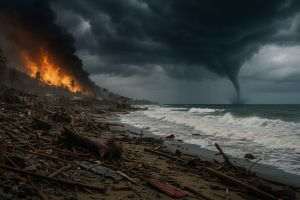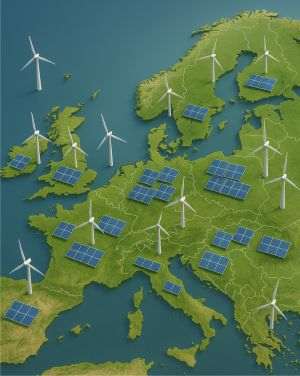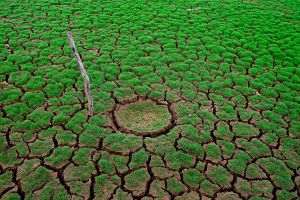The world as we know it is undergoing continuous change, and this is not necessarily a positive development. The Red List of Threatened Species compiled by the International Union for Conservation of Nature (IUCN) and recently updated highlights the consequences of global warming on biodiversity worldwide, as well as the effects of conservation efforts. The IUCN presented the new global inventory of the conservation status of plant and animal species at the UN Climate Change Conference (COP28). The Red List, which allows the assessment of the risk of extinction, currently includes 157,190 species, of which 44,016 are globally threatened with extinction. Among the changes made, the Atlantic salmon, previously categorized as "least concern" regarding extinction, is now considered "near threatened." Its population has declined by 23% globally between 2006 and 2020, mainly due to fish shortages caused by climate change and the impact of human activities. According to the updated list, green sea turtles from the central-south region and the eastern Pacific Ocean are considered "endangered" and "vulnerable," respectively, being affected by the consequences of global warming and accidental captures during fishing. In the plant world, the bigleaf mahogany, also known as "acajou wood," used in furniture production, decorative elements, and musical instruments, has been moved from the "vulnerable" to the "endangered" category. According to the IUCN, the number of specimens in Central and South America has decreased by at least 60% in the last 180 years due to unsustainable cultivation methods, urban development, and the expansion of agricultural lands that decimate tropical forests. The situation of two antelope species has improved, according to this Red List update. The scimitar-horned oryx is currently classified as "endangered" due to conservation efforts to reintroduce it in Chad after it disappeared from the wild in the late 1990s, with its survival depending on continuous protection against poaching, as noted by the IUCN. Saiga antelopes, primarily living in Kazakhstan, are no longer considered "critically endangered" but "near threatened," with their population in this Central Asian country increasing by 1,100% between 2015 and 2022. Additionally, the IUCN Red List of Threatened Species complements a first global study on the status of freshwater fish, stating that 25% of the evaluated species are currently at risk of extinction.
On the other hand, a new draft of the final text at COP28 no longer includes a gradual phase-out of coal, oil, and gas use, according to the DPA news agency. The 21-page document only mentions a reduction in fossil fuel consumption and production. In a previous version, the phased-out elimination was still listed as one of the options. Environmental organizations reacted, expressing their disappointment. Jan Kowalzig, a climate expert at Oxfam, spoke of a "timid formulation" that deviates from the fossil fuel topic. The other targets - tripling renewable energies and doubling energy efficiency - were not mentioned as objectives but only as possible measures. "COP28 should not end like this," said Kowalzig. The goal of limiting global warming to +1.5 degrees Celsius above pre-industrial levels, set by the Paris Agreement on climate concluded in 2015, is likely to be "thrown out the window" with this draft, "despite assurances to the contrary elsewhere in the text," Kowalzig added. Jan Kowalzig appealed to the European Union not to agree with the declaration. Developing countries and their allies must demand significant improvements, the expert emphasized.
The President of the UN Climate Change Conference, Sultan Ahmed Al Jaber, announced the approval of a proposal to hold COP29 in Azerbaijan, according to the Xinhua agency. Azerbaijan, a country located in South Caucasus, won the race to host COP29 after gaining support from other Eastern European countries. COP28, or the 28th Conference of the Parties to the United Nations Framework Convention on Climate Change, brought together over 110,000 registered participants in Dubai, United Arab Emirates, in an attempt to find a global solution to the urgent climate crisis faced by all countries. Armenia agreed not to block Azerbaijan's bid to host COP29 next year, as part of a series of reciprocal goodwill gestures aimed at promoting reconciliation between the two South Caucasus neighbors, who have long been in military opposition for control of the Nagorno-Karabakh enclave.

















































